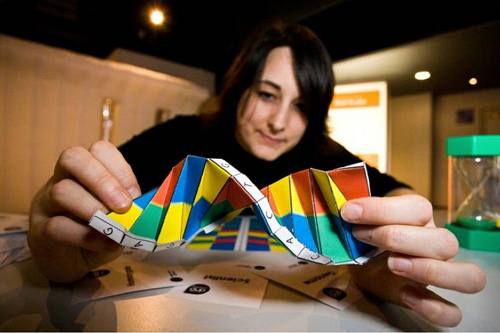First known trial of ‘three-person IVF’ reports successful pregnancy in an infertile couple; three parent baby will be born soon
In a pilot clinical trial, researchers achieved the world’s first pregnancy with a three parent baby by using the Maternal Spindle Transfer (MST) technique. This could open up new vistas in the future to solve the problem of infertility.
A 32-year-old Greek woman is now on course to give birth to a baby boy carrying DNA from three people. She participated in the first known clinical trial carried out using the Maternal Spindle Transfer technique for the treatment of infertility problems. The lady had already undergone two operations owing to endometriosis, and four cycles of IVF without getting pregnant.
The technique consists of extracting the meiotic spindle (mitochondria) from an unfertilised egg of a patient with mutations in their mitochondrial DNA, and placing it in the ovum of a donor with healthy mitochondria. The original nucleus from the mitochondria is removed beforehand. Finally, the resulting oocyte is fertilised with the sperm of the male partner.
The first baby born by this technique was in 2016 in Mexico. Later another such baby was born in Kiev. United Kingdom however became the first country to approve the clinical use of MST for the treatment of mitochondrial diseases
The study has enrolled 25 women under 40 years old who have had at least two previous failed IVF attempts, according to a clinical trial listing and is being carried out by scientists from Spanish centre Embryotools which is being sponsored by the assisted reproduction centre, Institute of Life in Athens.
Dr Nuno Costa-Borges, scientific director and co-founder of Embryotools, stresses that more than 99% of the DNA of a conceived baby will come from its biological mother and father, even if the oocyte comes from a donor. “Even though gametes are required from a man and two different women (the patient and the donor), the nuclear or genomic DNA responsible for the vast majority of phenotypical characteristics of the future baby will come from the biological mother and father, just like in a normal fertilisation process. The donor will only provide mitochondrial DNA, which only codes 37 genes and represents less than 1% of human DNA,” he said.
“This mitochondrial DNA provided by the donor will not be transmitted to future generations if the baby is male, because mitochondrial DNA is only transmitted maternally. Therefore, it is not believed to affect the germline”, he added.
The first baby born by this technique was in 2016 in Mexico. Later another such baby was born in Kiev. United Kingdom however became the first country to approve the clinical use of MST for the treatment of mitochondrial diseases. The purpose was to allow parents to have a child without passing on a genetic mutation that can cause a serious mitochondrial disease in the child.
The procedure also known as ‘mitochondrial replacement therapy’, is however banned in the U.S. because of concerns that introduction of DNA from a third ‘parent’ into an embryo is a form of genetic modification that could affect future generations.
“Maternal spindle transfer is an experimental technique that is currently undergoing a validation process. We need to be prudent with all aspects. It cannot simply be incorporated into the routine of any assisted reproduction clinic overnight. It requires special technology and the extensive training of researchers, with a long learning curve” states Dr Gloria Calderón, co-founder and director of Embryotools.


